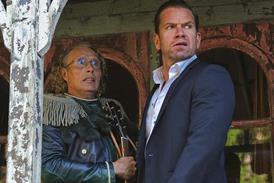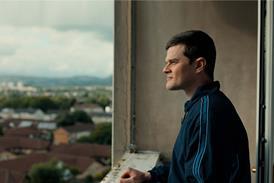The average cost to MPAA-affiliated studios of making andmarketing a film crossed $100m for the first time in 2003, outgoing MPAApresident Jack Valenti announced at ShoWest yesterday (23).
Combined US box office for MPAA films was the second highestin history, dropping 0.3% against last year's $9.5bn record tally for $9.47bn,while the level of US admissions dropped 4% from 1.64billion in 2002 to1.57billion - the third highest result after 1957 and 2002.
The cost of a US cinema ticket increased by 4% from $5.81 to$6.03 while the number of screens remained fairly static and the number ofsites dropped off.
Production and marketing costs
Based on information from 198 MPAA films out of a total of473 titles released in 2003, the average negative cost of a film rose by 8.6%from $58.8m in 2002 to $63.8m. Marketing costs alone increased by 28% from$30.62m in 2002 to $39m in 2003, resulting in a rise in combined production andmarketing costs of 15% to $102.9m in 2003.
However there was confusion over the provenance and accuracyof these figures after it emerged that studios are also submitting theirportion of domestic costs on co-productions - an increasingly popular financingmodel these days given the risk-averse climate that prevails in Hollywood - whilecontributions on these projects by non-MPAA partners remains undeclared. Inthis way the MPAA's figures incorporate a studio's investment in a film but donot show that title's total cost. Valenti added that studio members were merelyproviding information about film costs without identifying the films. Miramax,Dreamworks and New Line, among many others, do not belong to the MPAA.
"The cost tapeworm wiggling so energetically in filmproduction, nibbling, chewing, eating the fiscal molecules of the business,continues to stir restlessly," Valenti, who plans to retire in several monthsafter 37 years at the head of the MPAA, said. He added: "There's not much morethat can be said except budget discipline will be a fervid priority amongstudio executives."
Admissions
2003 admissions dropped 4% to 1.57billion, the third highestlevel after 1957 and 2002. Canadian theatre admissions were 130.9million, down3% on 2002, resulting in 1.71billion in North American admissions. Theatreadmissions have risen 71% from 1970 to 2003, compared to a 43% US populationrise.
Ticket prices
Prices climbed 4% against 2002 to $6.03 in the US. MPAAfigures reveal movie ticket prices have risen 45.7% in the last 10 years,compared to 51.2% for a Broadway show (now average ticket cost is $63.11), NBA64.7% ($44.68) and concerts 95.1% over seven years to $50.35.
Screen counts
Screen count held steady in 2003 while the number of sitesdeclined. By the end of 2003 there were 35,774 screens at 6,060 US sitescompared to 35,837 screens at 6,145 sites in 2002.
Release windows
The time between a film's theatrical release and subsequentvideo and DVD roll-out has dropped from five months and four days in 2002 tofour months and 23 days in 2003.
Valenti said he did not believe theatrical exhibition wastapering off in comparison to the booming DVD market and suggested there was nodamaging competition between the two. Valenti said the allure of cinema-goingremained strong, adding: "Even if families in the future are equipped with thelatest home theatre magic, it's just not the same as the emotional alchemy in atheatre."
Ratings by the numbers
Of all the MPAA films released in 2003, 29 were rated G,there were 79 PGs, 185 PG-13s, 646 Rs and 1 NC-17. In 2002 there were 29 Gs, 71PGs, 146 PG-13s, 539 Rs and 1 NC-17. Six of the top 25 films of 2003 were Rrated.
Piracy
Valenti cited the now familiar figure of $3.5bn lost in UStheatrical receipts each year to piracy and added that the generally slowdownload time of pirated films online was like a moat that offered limited andtemporary protection to the industry. However he implied the moat would nolonger be effective once download speeds increase within the next few years.John Fithian, the president of the National Association of Theatre Owners,reported that theatre owners were embarking on employee education schemes,running anti-piracy trailers in more than 5,000 theatres and supporting theMPAA in promoting federal and state legislation and international trade policyto combat piracy.















![[Clockwise from top left]: Paul Thomas Anderson, Chloe Zhao, Ryan Coogler, Park Chan-wook](https://d1nslcd7m2225b.cloudfront.net/Pictures/274x183/9/0/0/1467900_writerdirectors_192733.jpg)





No comments yet